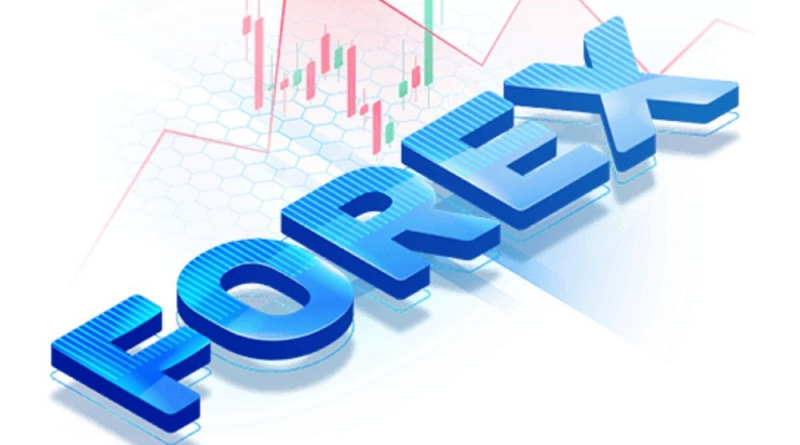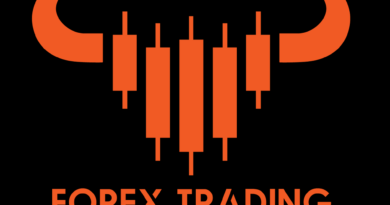Master the Art of Forex Trading: A Comprehensive Guide to Success in the Forex Market
What is Forex trading?
Forex trading, also known as foreign exchange trading, is the process of buying and selling currencies in the global market. It is the largest and most liquid financial market in the world, with trillions of dollars being traded daily. Forex trading involves speculating on the price fluctuations of currency pairs, with the aim of making a profit.
To participate in Forex trading, you need to have a basic understanding of how the market works. The primary objective is to buy a currency at a low price and sell it at a higher price, thus making a profit. The Forex market operates 24 hours a day, five days a week, allowing traders from all over the world to engage in trading at any time.
The basics of Forex trading
Before diving into Forex trading, it’s essential to grasp the basics. One of the fundamental concepts is the currency pair. A currency pair consists of two currencies, such as the EUR/USD or GBP/JPY. The first currency is called the base currency, while the second currency is known as the quote currency. Understanding how currency pairs work is crucial because it determines the value of one currency relative to another.
Exchange rates play a significant role in Forex trading. An exchange rate represents the value of one currency in terms of another. These rates fluctuate constantly due to various factors such as economic indicators, geopolitical events, and market sentiment. Traders closely monitor exchange rates to identify potential trading opportunities.

Understanding currency pairs and exchange rates
Currency pairs are the building blocks of Forex trading. Each pair represents the value of one currency relative to another. The first currency in the pair is the base currency, while the second currency is the quote currency. For example, in the EUR/USD pair, the euro is the base currency, and the US dollar is the quote currency.
Exchange rates determine the value of one currency in relation to another. These rates are influenced by a range of factors, including economic indicators, political events, and market sentiment. Exchange rates can be either fixed or floating. Fixed exchange rates are determined by central banks, while floating exchange rates are determined by the forces of supply and demand in the market.
To succeed in Forex trading, it is essential to understand how currency pairs and exchange rates work. Traders analyze these factors to identify potential trading opportunities and make informed decisions.
The Forex market and its participants
The Forex market is a decentralized global market where currencies are bought and sold. It operates 24 hours a day, five days a week, allowing traders to engage in trading at any time. The market consists of various participants, including banks, financial institutions, corporations, governments, and retail traders.
Banks and financial institutions are the primary participants in the Forex market. They engage in trading to facilitate international trade and manage their currency exposure. Corporations also participate in the market to hedge their foreign exchange risk. Governments intervene in the market to stabilize their currency and promote economic growth.
Retail traders, like you and me, have access to the Forex market through online brokers. These brokers provide trading platforms and tools that allow retail traders to execute trades and participate in the market. Retail traders can take advantage of leverage, which allows them to control larger positions with a smaller amount of capital.
Understanding the various participants in the Forex market is crucial for successful trading. Each participant has a different motive and impact on the market, which can influence price movements.
Forex trading strategies for beginners
As a beginner in Forex trading, it’s important to have a solid trading strategy. A trading strategy is a set of rules and guidelines that determine when and how to enter and exit trades. There are various trading strategies to choose from, depending on your trading style and risk tolerance.
One popular trading strategy for beginners is trend following. This strategy involves identifying the direction of the market trend and trading in the same direction. Traders look for price patterns and indicators that confirm the trend and enter trades accordingly.
Another strategy is range trading, which involves identifying price levels where the market tends to consolidate or move sideways. Traders look for opportunities to buy at support levels and sell at resistance levels.
Breakout trading is another strategy that involves trading the potential breakout of a price level. Traders look for price patterns that indicate a potential breakout and enter trades when the price breaks above or below a significant level.
It’s important to note that no trading strategy guarantees success. It’s essential to practice and refine your strategy through trial and error, and to adapt to changing market conditions.
Technical analysis in Forex trading
Technical analysis is a method of analyzing market data, such as price charts and indicators, to identify patterns and trends. It is widely used in Forex trading to make informed trading decisions.
There are various tools and indicators used in technical analysis, such as moving averages, trend lines, and oscillators. These tools help traders identify potential entry and exit points and determine the strength of a trend.
One of the key principles of technical analysis is that history tends to repeat itself. Traders believe that past price patterns and trends can provide insights into future price movements. By analyzing historical data, traders can identify recurring patterns and use them to predict future price movements.
Technical analysis is a valuable tool for Forex traders, but it’s important to remember that it is not foolproof. It should be used in conjunction with other forms of analysis, such as fundamental analysis, to make well-rounded trading decisions.
Fundamental analysis in Forex trading
Fundamental analysis is a method of analyzing economic, political, and social factors that can influence the value of a currency. It involves analyzing economic indicators, such as GDP growth, inflation rates, and interest rates, to determine the overall health of an economy.
Fundamental analysis is particularly important in Forex trading because currency values are influenced by a range of factors, including economic indicators, political events, and market sentiment. Traders analyze these factors to identify potential trading opportunities and make informed decisions.
One of the key indicators used in fundamental analysis is GDP growth. GDP, or Gross Domestic Product, measures the total value of goods and services produced in a country. A higher GDP growth rate is generally associated with a stronger currency.
Interest rates also play a significant role in fundamental analysis. Central banks use interest rates as a tool to control inflation and stimulate economic growth. Changes in interest rates can have a significant impact on currency values.
Fundamental analysis is a vital tool for Forex traders, but it’s important to remember that it is not the only factor to consider. It should be used in conjunction with other forms of analysis, such as technical analysis, to make well-rounded trading decisions.
Risk management in Forex trading
Risk management is a crucial aspect of Forex trading. It involves identifying and managing potential risks to protect your capital and minimize losses. Successful traders have a well-defined risk management strategy in place to ensure long-term profitability.
One of the key principles of risk management is to never risk more than you can afford to lose. This involves setting a maximum risk per trade or per day and sticking to it. Traders also use stop-loss orders to limit potential losses on a trade.
Diversification is another important risk management strategy. By diversifying your portfolio, you spread your risk across different currency pairs and reduce the impact of a single trade on your overall capital.
Monitoring market conditions and staying informed is also essential for effective risk management. By keeping up-to-date with economic indicators, political events, and market sentiment, you can make informed decisions and manage potential risks.
Risk management should be an integral part of your Forex trading plan. By managing your risks effectively, you can protect your capital and increase your chances of long-term success.

Choosing a Forex broker
Choosing the right Forex broker is crucial for successful trading. A Forex broker acts as an intermediary between you and the Forex market, providing you with access to trading platforms and tools.
When selecting a Forex broker, there are several factors to consider. One of the key factors is regulation. It’s important to choose a broker that is regulated by a reputable regulatory authority, as this ensures that the broker operates in a transparent and fair manner.
Another factor to consider is the trading platform offered by the broker. The trading platform should be user-friendly and provide you with the necessary tools and features to execute trades effectively.
Transaction costs are also an important consideration. Forex brokers earn their revenue through spreads, which are the difference between the buying and selling price of a currency pair. It’s important to choose a broker with competitive spreads to minimize your trading costs.
Customer support is another crucial factor to consider. A reliable Forex broker should provide prompt and efficient customer support to address any issues or concerns you may have.
Forex trading platforms and tools
Forex trading platforms and tools play a crucial role in successful trading. A trading platform is a software application that allows you to execute trades, analyze market data, and manage your trading account.
There are various trading platforms available, each with its own features and capabilities. Popular trading platforms include MetaTrader 4 (MT4) and MetaTrader 5 (MT5). These platforms provide a wide range of tools and indicators for technical analysis and allow you to execute trades with ease.
In addition to the trading platform, there are various tools and indicators that can help you make informed trading decisions. These tools include charting software, economic calendars, and news feeds. By utilizing these tools, you can stay informed about market conditions and identify potential trading opportunities.
Automated trading systems, also known as expert advisors, are another useful tool for Forex traders. These systems use algorithms to automatically execute trades based on predefined rules. Automated trading can be beneficial for traders who want to take advantage of market opportunities without being constantly monitoring the market.
Developing a Forex trading plan
A Forex trading plan is a set of rules and guidelines that determine your trading approach. It helps you stay disciplined and focused, and provides a framework for making informed trading decisions.
When developing a trading plan, there are several factors to consider. First, you need to define your trading goals and objectives. This includes determining your risk tolerance, desired return on investment, and preferred trading style.
Next, you need to define your trading strategy. This includes selecting the currency pairs you want to trade, the timeframes you want to trade on, and the indicators and tools you will use to analyze the market.
Risk management should also be a key component of your trading plan. This includes setting your maximum risk per trade or per day, using stop-loss orders to limit potential losses, and diversifying your portfolio to spread your risk.
Lastly, you need to define your trading routine. This includes determining your trading hours, the amount of time you will spend analyzing the market, and the frequency at which you will execute trades.
By developing a trading plan and sticking to it, you can increase your chances of success in Forex trading.
Common mistakes to avoid in Forex trading
Forex trading can be challenging, and many traders make common mistakes that can hinder their success. By being aware of these mistakes, you can avoid them and improve your trading performance.
One common mistake is overtrading, which is the result of trading too frequently or with too much volume. Overtrading can lead to emotional decision-making and increased transaction costs. It’s important to be patient and wait for high-probability trading opportunities.
Another common mistake is not using stop-loss orders. A stop-loss order is an order placed to sell a currency pair at a specified price, preventing further losses. By not using stop-loss orders, you expose yourself to unlimited losses.
Lack of discipline is another common mistake. It’s important to stick to your trading plan and not let emotions drive your trading decisions. Greed and fear can cloud your judgment and lead to poor trading outcomes.
Not staying informed is another common mistake. Market conditions are constantly changing, and it’s important to stay up-to-date with economic indicators, political events, and market sentiment. By staying informed, you can make informed decisions and adapt to changing market conditions.
Resources for further education and training in Forex trading
Forex trading is a complex and ever-evolving field, and it’s important to continually educate yourself and improve your skills. Fortunately, there are many resources available to help you learn and grow as a trader.
One of the best resources for Forex education is online courses. Many reputable institutions and trading professionals offer online courses that cover various aspects of Forex trading, from the basics to advanced strategies. These courses often provide video lessons, quizzes, and interactive exercises to enhance your learning experience.
Books are another valuable resource for Forex education. There are many books available that cover a wide range of topics, from technical analysis to risk management. Reading books written by successful traders can provide valuable insights and perspectives.
Online forums and communities are also a great resource for learning and networking. There are many online forums and communities dedicated to Forex trading, where traders can share their experiences, ask questions, and learn from each other.
Lastly, demo accounts are an excellent tool for practicing and honing your trading skills. Many Forex brokers offer demo accounts, which allow you to trade with virtual money in a simulated trading environment. Demo accounts are a risk-free way to test your strategies and gain practical experience.




